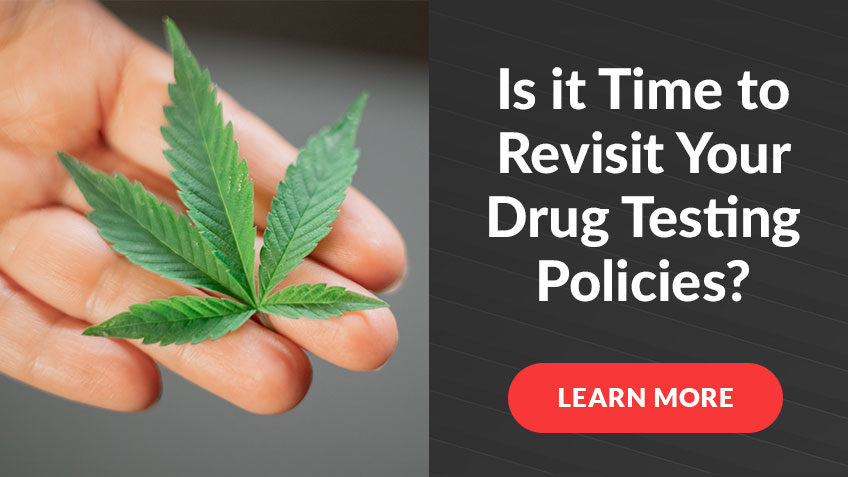
Is it Time to Revisit Your Drug Testing Policies?
The legalization of cannabis is constantly evolving, and employers need to stay up to date on the latest policies regarding drug testing and recreational use of marijuana outside of the workplace. Recreational laws and drug testing policies are different in every state, which presents a particularly challenging task for multistate companies to remain compliant.
It doesn’t help that new states are constantly changing, revising laws and many more are likely to legalize marijuana in the near future.
Today, we take a look at new cannabis laws protecting off-duty, recreational use for employees and how it may affect your drug testing policies.
As of today, the use of cannabis is still prohibited under federal law, which makes local protection laws rather tricky. While California has taken measures to reduce the use of employment drug tests, it does not currently protect its workers who consume marijuana outside the workplace.
On the other hand, the states of New York and New Jersey have introduced cannabis laws aiming to protect workers from recreational use repercussions. New Jersey now prohibits employers from making an “employment” decision based “solely” on a positive drug test. There are intricacies to this law. Employers are allowed to fire an employee as long as there is a valid reason beyond the positive drug test, but cannot do so on the basis of the positive test alone.
Similarly, Nevada prohibits employers from taking actions against workers who test positive unless the job has critical safety implications.
Employers will struggle to remain compliant locally, and federally under the fast evolving laws surrounding marijuana in the United States. It is important to remain up to date and informed on new legislations to ensure the protection and safety of your workers.
Should You Change Your Testing Policies?
Many employers fail to understand the tests and results themselves. Employers should work closely with the test providers to fully understand what the results actually imply. While off-duty use is protected in some states, employers can still enforce policies that prohibit workers from being “under the influence” at the workplace. Testing and results can vary greatly based on the type of test performed (hair, saliva, blood, urine). There is currently no test to accurately detect real-time consumption, making it difficult to prove whether or not an employee was intoxicated during their shift.
Employers will without a doubt have to make adjustments to their testing policies, and even train employees to recognize the signs of cannabis intoxication. Additionally, if safety isn’t a concern, one can wonder if a shift in mentality towards cannabis use would influence employer’s decisions. Yes, one of your employees might test positive, but you may not be able to terminate them solely based on that. Should you fire a good employee for off-duty cannabis use even if it happened several weeks ago? It certainly remains a valid question moving forward.
